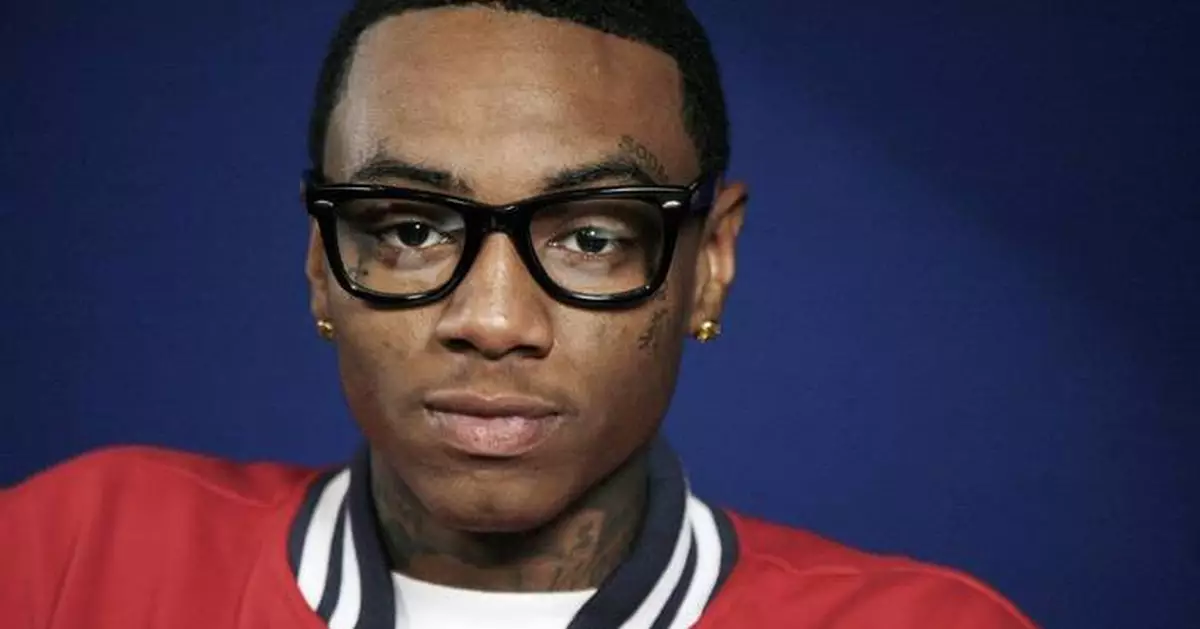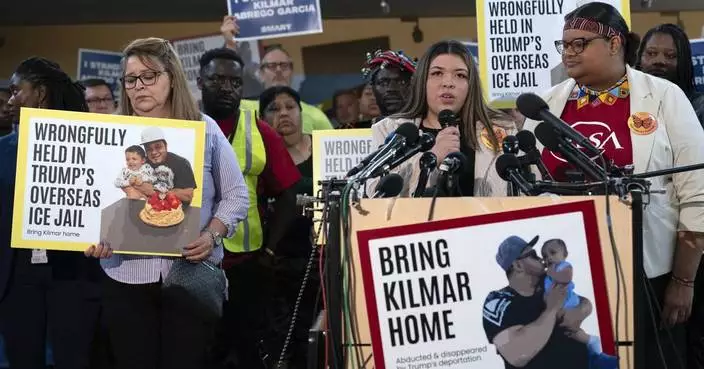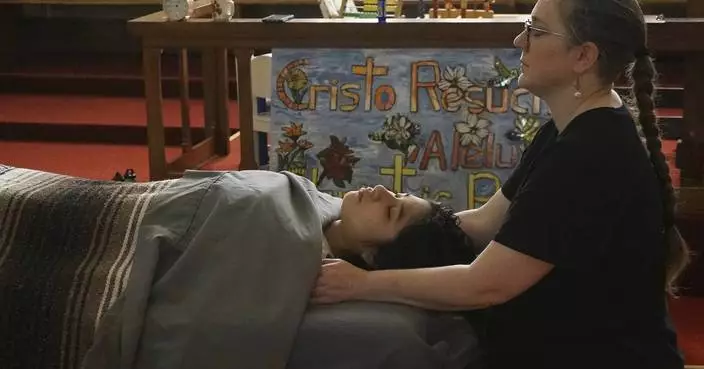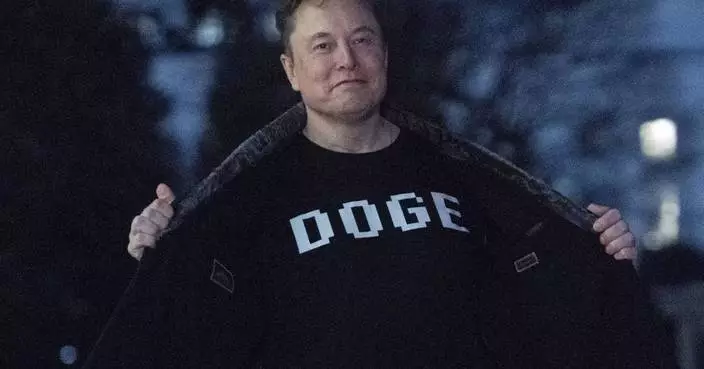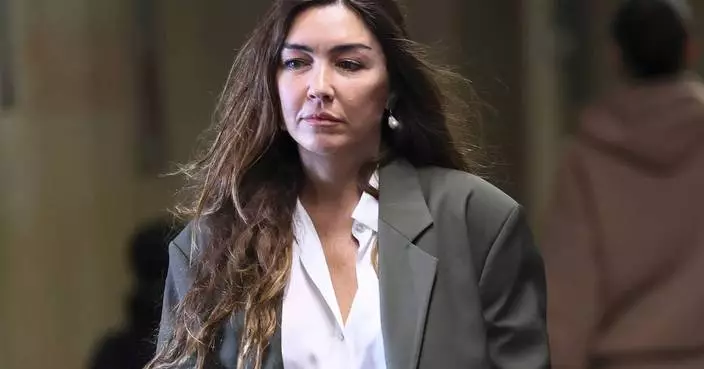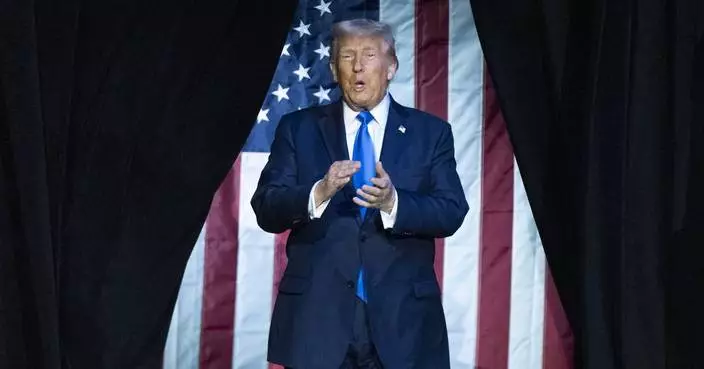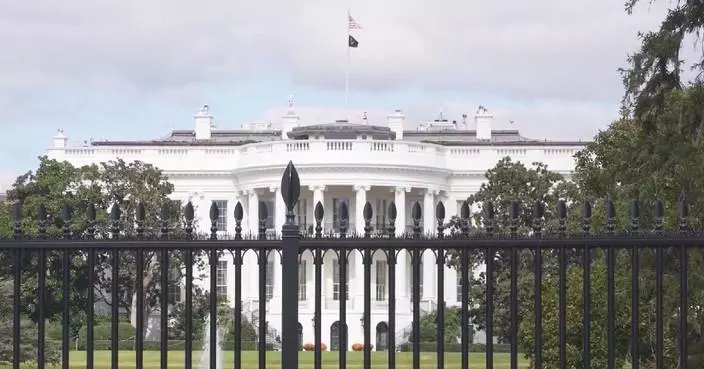SANTA MONICA, Calif. (AP) — A jury on Thursday found that rapper Soulja Boy was liable for sexually assaulting and physically and emotionally abusing a former assistant, awarding the woman more than $4 million in damages.
The decision from the Los Angeles County jurors came after a three-week trial in Santa Monica, California.
The 34-year-old Soulja Boy, whose legal name is DeAndre Cortez Way, was found liable for assault, sexual battery and intentional infliction of emotional distress. Jurors did not find him liable for false imprisonment and other allegations. They found the woman should get about $4 million in compensatory damages and another $250,000 in punitive damages.
“Today’s verdict is just the beginning of justice for Soulja Boy’s victims, and other victims in the music industry,” plaintiff's attorney Neama Rahmani said in a statement.
Lead defense attorney Rickey Ivie said in his own statement: “We maintain that the evidence does not support the verdict. It is unfortunate that aspersions and misperceptions of a culture were allowed to influence the trial. Mr. Way fully intends to pursue his post-trial remedies and to fight for a just result in this case.”
The woman was not identified by name in the lawsuit she filed in 2021, and The Associated Press does not typically name people who say they have been sexually abused.
She said she began working for Soulja Boy in 2018, and he agreed to pay her $500 a week for cleaning his house, cooking for him and doing other personal tasks. But she says she was never paid.
The two began a romantic relationship, and soon after he began abusing her, raping her, kicking her, punching her and threatening her with violence and death, her lawsuit alleges.
She believed she was in love with him, and he manipulated her into staying until 2020 despite repeated acts of violence, the lawsuit says.
She was beaten and raped again when she returned to retrieve her things months after leaving him, the lawsuit says.
The Chicago hip-hop artist is best known for his 2007 single “Crank That (Soulja Boy),” which went to No. 1 on the Billboard Hot 100 and brought him a Grammy nomination for best rap song.
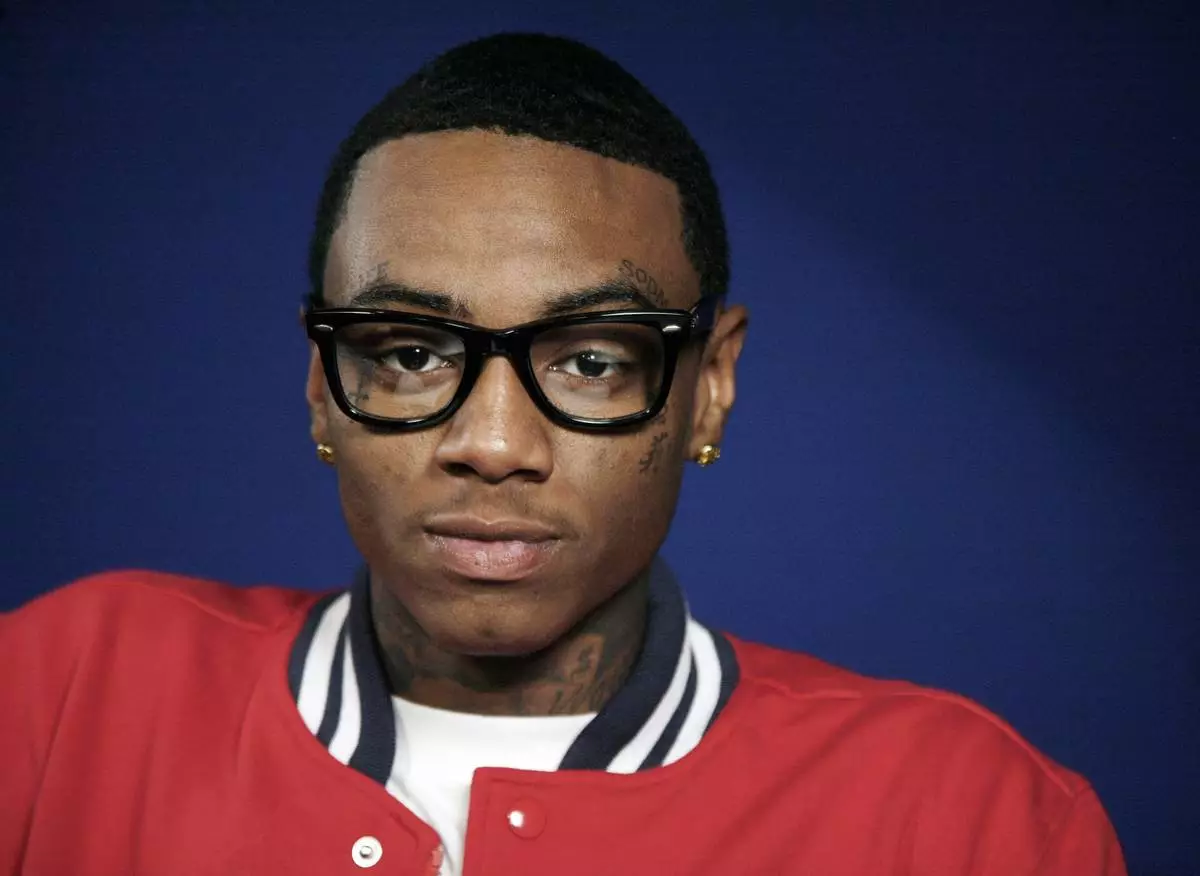
FILE - Soulja Boy poses for a portrait, Nov. 29, 2010, in New York. (AP Photo/Jeff Christensen, File)
The nation's public broadcasting system — decades-long home to Big Bird, Ken Burns documentaries and “All Things Considered" — faces the biggest crisis in its nearly 60-year history with President Donald Trump's order to slash federal subsidies.
A court fight seems inevitable, with the heads of PBS, NPR and the Corporation for Public Broadcasting all suggesting Friday that Trump's order is illegal.
“We will vigorously defend our right to provide essential news, information and life-saving services to the American public,” said Katherine Maher, NPR's president and CEO. “We will challenge this executive order using all means available.” Her counterpart at PBS, Paula Kerger, said Trump's order was blatantly unlawful.
The public broadcasting system dates back to the late 1960s, devised as an educational and public service-oriented alternative to commercial broadcasters available at the time. In his order, Trump said the system has become politically biased and time has passed it by.
“Today the media landscape is filled with abundant, diverse and innovative news options,” the president said in his order, issued just before midnight Thursday. “Government funding of news media in this environment is not only outdated and unnecessary, but corrosive to the appearance of journalistic independence.”
Trump's order concentrates on news, and between PBS' “NewsHour” and a robust reporting corps at NPR, that's an important part of their operations. But public broadcasting also has entertainment programming, educational children's shows and Burns' historical documentaries.
PBS and NPR get about a half-billion dollars a year in public funding funneled through the private Corporation for Public Broadcasting. Roughly 70% of that goes directly to the 330 local PBS outlets and 246 NPR stations.
On average, PBS says 15% of its stations' budgets come from public funding. But there are wide variations; stations in larger markets usually get more money through philanthropy and fund drives, while smaller stations depend much more on the government.
Besides Trump's order, Congress has been considering future funding levels for the public broadcasters, and the Federal Communications Commission is questioning public broadcasting efforts at corporate underwriting, said Josh Shepperd, author of the 2023 book “Shadow of the New Deal: The Victory of Public Broadcasting.”
“It's a three-pronged effort that is frankly very smart in its institutional understanding,” Shepperd said. “They're not just going after programs that they don't like. They're going after the operations and the infrastructure that makes it possible to even air the programming.”
Trump's order instructs the CPB and other government agencies to “cease Federal funding” for PBS and National Public Radio and further requires that they work to root out indirect sources of public financing. Separate from the CPB grant, for example, PBS gets a grant from the U.S. Department of Education for programming that helps build the reading, math and science skills for children age 2 to 8, particularly in poor areas.
The administration's plan might not threaten your favorite program — Burns gets plenty of corporate and philanthropic support — but it may impact local programming and potential growth, Shepperd said.
Congressional Republicans aired some of their grievances about public broadcasting to Kerger and Maher at a public hearing in March. Such complaints have been common over the years, but the broadcasters have avoided funding cuts, in large part because members of Congress don't want to be seen as responsible if a station in their district shuts down. Who wants to be the public official who killed “Sesame Street”?
Also, public pressure from constituents is minimized because most Republicans don't watch PBS or listen to NPR, said Tim Graham, director of media analysis at the conservative Media Research Center. “I have this morning habit of listening to NPR on my commute,” Graham said. “I yell at the radio.”
For years, Graham's group has issued reports with examples of what it says is bias against conservatives. For example, during an 18-month period that ended last November, his researchers counted 162 examples of PBS journalists or contributors making reference labeling some politicians “far right” or some variation, with only six called “far left.”
He said he's not trying to shut down these stations, but resists them receiving public money.
“Let the people who listen to it do the funding,” Graham said.
At a board meeting Friday, CPB president and CEO Pat Harrison said her agency has taken bias concerns seriously. It has increased investments in fact-based local journalism, and provided a grant to NPR to make changes in its newsroom to address issues of bias.
The court fight over public broadcasting has already begun. The president earlier this week said he was firing three of the five remaining CPB board members — threatening its ability to do any work — and was immediately sued by the CPB to stop it.
The executive order is also the latest move by Trump and his administration to utilize federal powers to control or hamstring institutions whose actions or viewpoints he disagrees with — particularly those related to media.
Since taking office in January for a second term, Trump has ousted leaders, placed staff on administrative leave and cut off hundreds of millions of dollars in funding to artists, libraries, museums, theaters and others, through takeovers of the John F. Kennedy Center for the Performing Arts and the National Endowment for the Humanities. Trump has also pushed to withhold federal research and education funds from universities and punish law firms unless they agree to eliminate diversity programs and other measures he has found objectionable.
The move against PBS and NPR comes as Trump's administration works to dismantle the U.S. Agency for Global Media, including Voice of America and Radio Free Europe/Radio Liberty, which were designed to model independent news gathering globally in societies that restrict the press.
Those efforts have faced pushback from federal courts, which have ruled in some cases that the Trump administration may have overstepped its authority in holding back funds appropriated to the outlets by Congress.
AP Congressional Correspondent Lisa Mascaro contributed to this report. David Bauder writes about media for the AP. Follow him at http://x.com/dbauder and https://bsky.app/profile/dbauder.bsky.social
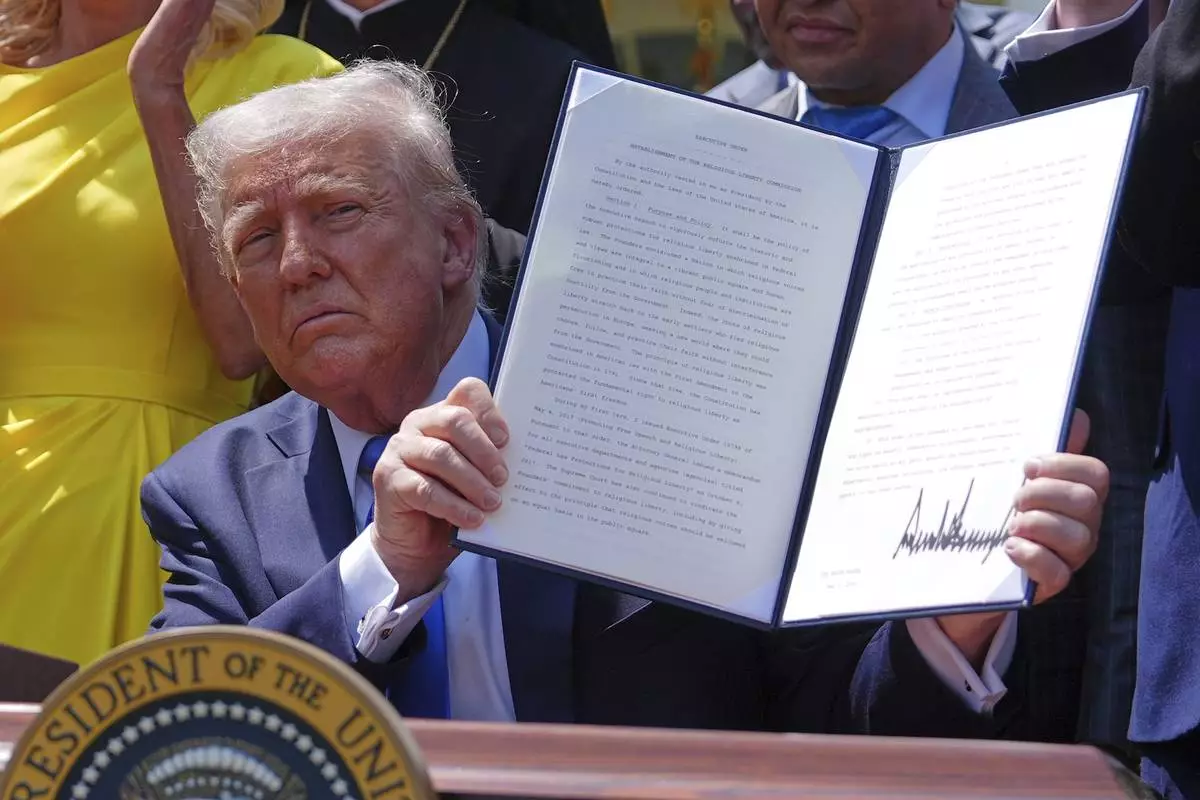
President Donald Trump holds up a signed executive order establishing the Religious Liberty Commission, during a National Day of Prayer event in the Rose Garden of the White House, Thursday, May 1, 2025, in Washington. (AP Photo/Evan Vucci)
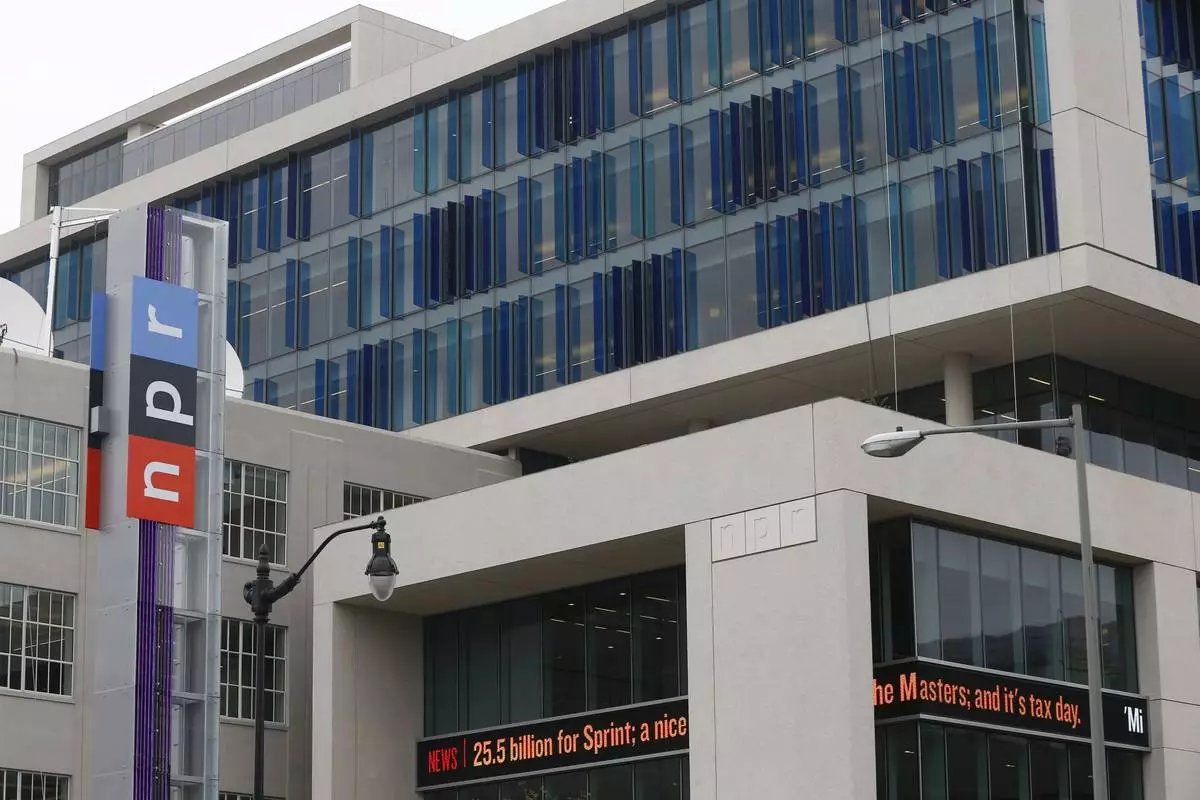
FILE - The headquarters for National Public Radio (NPR) is seen in Washington, April 15, 2013. AP Photo/Charles Dharapak, File)
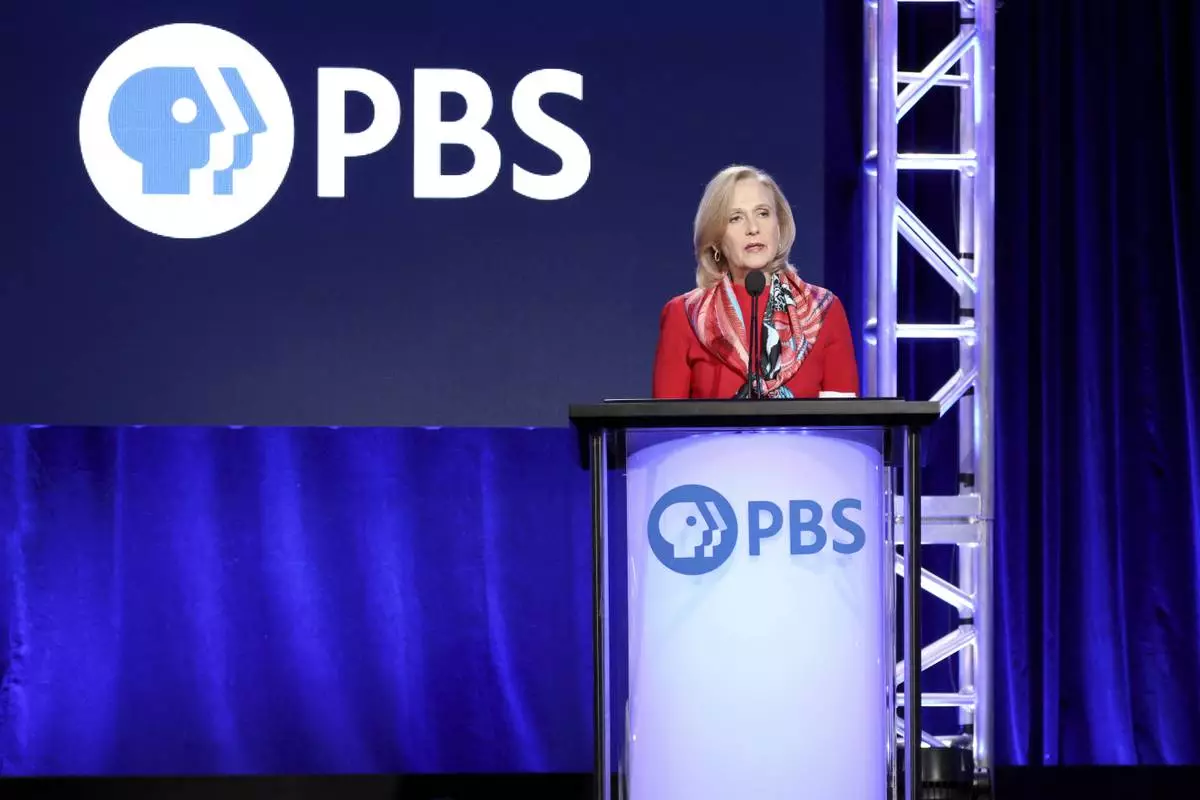
FILE - Paula Kerger, President and CEO at PBS, speaks at the executive session during the PBS Winter 2020 TCA Press Tour at The Langham Huntington, Pasadena, Jan. 10, 2020, in Pasadena, Calif. (Photo by Willy Sanjuan/Invision/AP, File)



